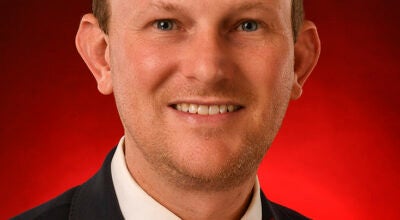Smoking out the Nanny State
Published 11:00 pm Wednesday, July 17, 2013
The city of Troy’s recent smoking ban represents our own local experimentation with the Nanny State. A new paternalism has emerged in America, and the Nanny State represents one of the most significant threats to our remaining freedom.
Professorial debates about whether people make good decisions might seem far removed from life, but many policy measures today presume that politicians and bureaucrats make better choices for you than you would yourself. New York City’s restrictions on fountain drinks and steep increases in cigarette taxes represent two examples. Even President Obama’s climate change initiative assumes a low cost for steep cuts in energy use because people do not recognize the value of conservation.
Smoking bans provide a great vehicle to examine paternalism. At the bottom of the paternalism debate is a simple question: Are unhealthy choices necessarily bad? The well-established health effects of smoking have made this a prime wedge issue for the new paternalists, who seek to protect smokers from themselves.
Paternalistic government raises problems for a nation which also values freedom. Freedom must involve the freedom to make mistakes because we all make mistakes. The Declaration of Independence says that people have the right to pursue happiness because missteps can always frustrate this pursuit.
Government paternalism tries to emulate good parenting. Children cannot appreciate all of the consequences of their actions, like the life costs of not doing their homework. We know that children may make decisions not in their best interest. Parents take precautions to allow their kids to learn from and not be maimed by their mistakes. Grown children validate good parenting by thanking their parents for limiting their freedom.
We recognize the value of limiting the freedom of children. Some new paternalists think we are all children, and need them to set curfews for us. Most Americans recognize that others are like themselves, capable of making both good and bad decisions. This creates a thin potential space for paternalistic government, even among people who value freedom.
The case for paternalism turns on whether differences in values or goals might explain what otherwise looks like purely self-destructive behavior.
We discover early that others do not see the world exactly like we do. As an economist, I teach students how differences in outlook or values often drive trade. Markets trade millions of shares of stock each day. Both the buyer and seller think that the agreed on price is a good deal: trade happens because they see the world differently. Differences in values and outlook contribute to the richness of the world.
Ultimately I believe that the paternalists have forgotten the lesson that others view the world differently.
]To see this, let’s consider whether every harmful or potentially harmful action results from a poor decision. If this is true, then the door is open for the Nanny State. But many people engage in risky activities like skiing, rock climbing, sky diving. They recognize and try to limit the danger but enjoy the activities and exhibit no mental imbalance in doing so. Other Americans have dangerous jobs, for which they receive higher pay. Ice road truckers might be a little crazy, but we recognize that it’s a job, even if not one we would want.
How about the tough questions, like eating fatty foods or smoking? I personally recognize the value in eating “unhealthy” and yet tasty food. I have never smoked and think the world would be a better place if smoking disappeared. I am tempted to doubt the rationality of smokers. But some people do enjoy smoking: my dad smoked for 35 years before quitting for good, and years later still missed it. People are very different. Ultimately smokers trade health for enjoyment, just like mountain climbers.
Government in the American tradition serves citizens, so no group of people – including government officials – can impose their preferences on other adults. Undoubtedly many Americans eat and smoke more and exercise less than they like. This is hardly news, because nobody is perfect. Making everyone exercise or banning smoking restricts the freedom of adults who have made a deliberate decision based on their personal values. Modern Nanny Statists ultimately seek to impose the value they place on health versus enjoyment on their fellow Americans.
Daniel Sutter is the Charles G. Koch Professor of Economics with the Manuel H. Johnson Center for Political Economy at Troy University. Talk back to Dan at dsutter@troy.edu


